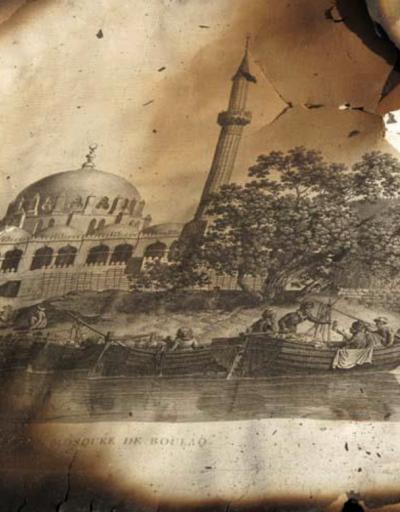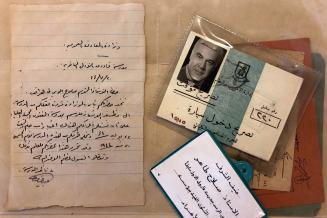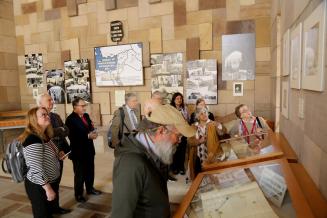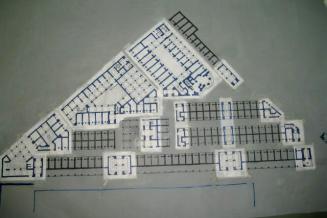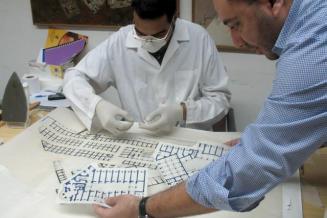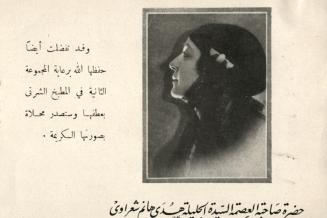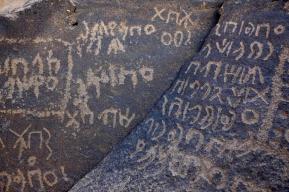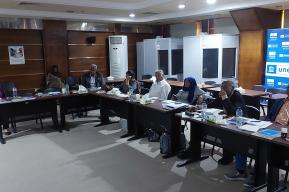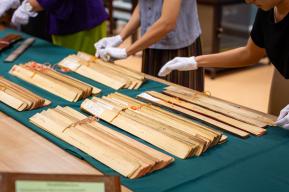The American University in Cairo’s (AUC) Libraries and Learning Technologies (LLT) has been awarded the 2022 UNESCO/Jikji Memory of the World Prize for the decades of preservation work carried out by its Rare Books and Special Collections Library (RBSCL).
Founded in 1919, AUC has evolved over the years into an major research hub for Arab and African countries, playing a key role in preserving Egyptian documentary heritage and making it accessible for scholars, students, and the public within and beyond Egypt.
UNESCO interviewed Ms Heba Sayed, Director, Planning, Assessment and Business Development of the American University in Cairo, to learn more about the institution’s work and how the Jikji Prize will impact its future efforts.
Rare Books and Special Collections Library, the American University in Cairo
Can you tell us what winning the UNESCO/Jikji Memory of the World Prize means for AUC?
AUC’s LLT is deeply honored to be the recipient of the Jikji Prize, which recognizes the decades of work carried out by the RBSCL. The RBSCL feels inspired to be among the recipients of this biennial award and it will continue to work arduously to identify, keep, preserve and share the records and the story of those who have contributed to changing the world, and are often underrepresented in mainstream historical records.
AUC’s RBSCL has made efforts to collect and preserve historical documents of Egypt and the wider region, as well as supported scholars and actively developed programmes for communities. What have been the difficulties faced and what makes you most proud of in carrying out this work?
The effort to collect and preserve documentation of cultural and historical value has been an extraordinary journey started by a handful of faculty, librarians and curators who built these collections to enhance teaching and learning, as well as to give AUC a direction to collect documentary heritage from Egypt and beyond. These efforts have grown to be strong examples of the roles that libraries, universities and learning institutions have in the preservation and open sharing of documentary evidence and heritage in Egypt.
AUC—through the reputation of the RBSCL—is considered an ideal destination to receive important gifts of significant documentary heritage. This is a source of pride and AUC continues its efforts to meet the trust of donors and researchers who expect state-of-the-art access and conditions.
Much of this work continues in the face of ongoing challenges stemming from preservation, conservation, digitization, etc., such as changes and technological requirements that are not always accessible.
The documentary heritage work at AUC’s RBSCL needs to grow to include the implementation of new and developing digital archive principles and best practices as it moves forward collecting born-digital records, including digital pictures. To this effect, AUC’s RBSCL and the AUC Digitization Center are developing strategies and implementing the newest technologies to establish the best possible procedures for AUC to take on thousands of items of documentary heritage in digital format, and to share them globally. This represents a significant investment in resources to build up and maintain the existing cultural collections in digital format, which complement or add to the work of building up and disseminating culturally significant materials for present and future generations.
What do you think is the most challenging element for memory institutions to preserve documentary heritage and make it available to people?
We face many challenges such as the changing nature of the investments needed to acquire, conserve and make these materials accessible, the rising cost of expenditures during inflation and economic crisis, and how to measure and justify the sustainability of these operations. The changing nature of disseminating these documents also requires using platforms and digital gateways that are relatively new and expensive during the digital wave of Open Access.
Beyond practical business-like considerations, other challenges include competing with institutions with deeper pockets, limited budgets, or the question and nature of ownership as well as the politics involved in the acquisition and long-term preservation of materials that may be seen as national treasures. There are also perceptions of documentary heritage that—despite being outside of traditional paradigms—deserve their place in this quest for a greater understanding in the journey of building special and cultural collections.
How do you expect the Jikji Prize to impact the library’s future activities?
The Jikji Prize will certainly put AUC and its RBSCL in the limelight and help make its many special collections better known, which will attract scholars, researchers and the public to its impressive assets. The award will also help to provide advanced training to Conservation Laboratory staff to keep them up to date with the latest expertise and progressive techniques. Additionally, the award will be used to create a seed-programme to start a fundraising campaign that can build support for guest researchers, enabling them to access collections that are not yet digitized. Lastly, there is a desire to use the award to implement best practices with the help of experts in the field who can help shape the building and preservation of these heritage collections for generations to come.
Are there any future plans to enhance access to and usability of your collections?
Future planning includes—among what was mentioned earlier—using this global prize as a way of enhancing recognition to attract philanthropic support to help expand and continue the work that AUC’s RBSCL is doing, as it requires additional support within Egypt, the region, and beyond. For example, several universities are interested in accessing many of the collections of film, photography, Islamic, Arabic and other collections such as the Creswell Collection. They are seeking digital access, which can be expensive to produce as it requires high-cost cloud storage services.
Therefore, finding alumni or others from those universities and institutions who will support digital resource-sharing and building of shared scholarships from these access projects will be aided by the Jikji Prize. The ambitious plan is to set up an additional RBSCL exhibition venue using state-of-the-art design and technology at AUC Tahrir Square–the Downtown Cairo campus—due to its memorial status and accessibility to all external visitors and researchers.


